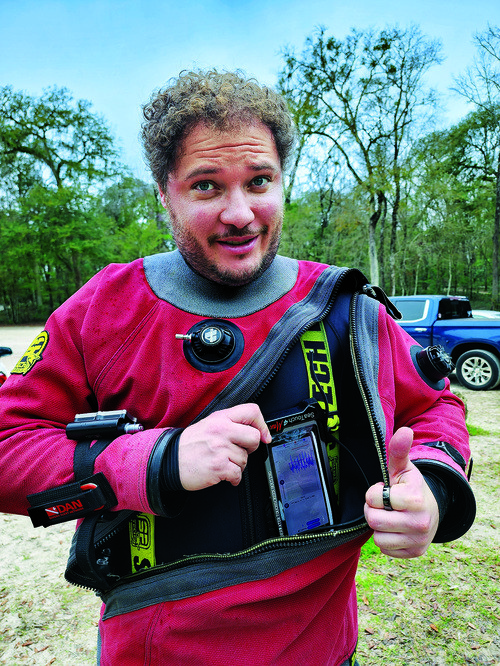Monitoring Cardiac Health in Scuba Divers

Decompression-related events typically come to mind when thinking of dive injuries and fatalities. However, DAN Research’s incident analysis program has shown that approximately one-third of diving fatalities can be traced to a cardiac event, making cardiac-related issues the No. 1 cause of fatalities while diving.
The most suspected fatal cardiac event is an arrhythmia that triggers cardiac arrest. Certain medical conditions, including left ventricular hypertrophy (LVH), in which the heart muscles are stretched to greater than normal size, correlate with increased arrhythmias. When diving, the increased pressure and workload can also increase stress on the heart, possibly triggering arrhythmias.
DAN is especially interested in studying the prevalence of arrhythmias and LVH in public safety divers due to the often strenuous nature of their dives. We want to work with public safety teams nationwide willing to participate in our study, which involves collecting electrocardiograms and ultrasound measurements of the heart before, during, and after a training dive.
If you are interested in participating, please get in touch with DAN Research at research@dan.org.
[Image © Grant Dong]
The most suspected fatal cardiac event is an arrhythmia that triggers cardiac arrest. Certain medical conditions, including left ventricular hypertrophy (LVH), in which the heart muscles are stretched to greater than normal size, correlate with increased arrhythmias. When diving, the increased pressure and workload can also increase stress on the heart, possibly triggering arrhythmias.
DAN is especially interested in studying the prevalence of arrhythmias and LVH in public safety divers due to the often strenuous nature of their dives. We want to work with public safety teams nationwide willing to participate in our study, which involves collecting electrocardiograms and ultrasound measurements of the heart before, during, and after a training dive.
If you are interested in participating, please get in touch with DAN Research at research@dan.org.
[Image © Grant Dong]
Categories
2025
2024
February
March
April
May
October
My name is Rosanne… DAN was there for me?My name is Pam… DAN was there for me?My name is Nadia… DAN was there for me?My name is Morgan… DAN was there for me?My name is Mark… DAN was there for me?My name is Julika… DAN was there for me?My name is James Lewis… DAN was there for me?My name is Jack… DAN was there for me?My name is Mrs. Du Toit… DAN was there for me?My name is Sean… DAN was there for me?My name is Clayton… DAN was there for me?My name is Claire… DAN was there for me?My name is Lauren… DAN was there for me?My name is Amos… DAN was there for me?My name is Kelly… DAN was there for me?Get to Know DAN Instructor: Mauro JijeGet to know DAN Instructor: Sinda da GraçaGet to know DAN Instructor: JP BarnardGet to know DAN instructor: Gregory DriesselGet to know DAN instructor Trainer: Christo van JaarsveldGet to Know DAN Instructor: Beto Vambiane
November
Get to know DAN Instructor: Dylan BowlesGet to know DAN instructor: Ryan CapazorioGet to know DAN Instructor: Tyrone LubbeGet to know DAN Instructor: Caitlyn MonahanScience Saves SharksSafety AngelsDiving Anilao with Adam SokolskiUnderstanding Dive Equipment RegulationsDiving With A PFOUnderwater NavigationFinding My PassionDiving Deep with DSLRDebunking Freediving MythsImmersion Pulmonary OedemaSwimmer's EarMEMBER PROFILE: RAY DALIOAdventure Auntie: Yvette OosthuizenClean Our OceansWhat to Look for in a Dive Boat
2023
January
March
Terrific Freedive ModeKaboom!....The Big Oxygen Safety IssueScuba Nudi ClothingThe Benefits of Being BaldDive into Freedive InstructionCape Marine Research and Diver DevelopmentThe Inhaca Ocean Alliance.“LIGHTS, Film, Action!”Demo DiversSpecial Forces DiverWhat Dive Computers Don\'t Know | PART 2Toughing It Out Is Dangerous
April
